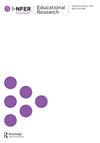管理向网络的转变:封锁期间和之后的讲师策略
IF 2.6
3区 教育学
Q1 EDUCATION & EDUCATIONAL RESEARCH
引用次数: 0
摘要
摘要背景冠状病毒大流行导致国际上开展的教学、学习和研究活动发生了变化。封锁迫使包括高等教育在内的所有教育部门在短时间内采取各种在线学习方式。由于这些实践变化的影响超出了疫情范围,因此需要更多地了解全球各地的环境,在这些环境中,转向在线可能会带来特别的挑战。这项研究的重点是尼日利亚一所教育学院的讲师如何应对封锁的专业需求,并制定了在疫情期间和之后具有相关性的教育活动管理策略。目的本文报道的这项研究的目的是检验讲师对封锁期间教学、学习和研究活动管理的看法,得出长期影响。方法通过对尼日利亚一所教育学院的六名讲师进行深入的一对一访谈来收集数据。访谈数据进行了定性分析。研究结果详细分析表明,讲师的策略包括鼓励学生进行自主学习,因为他们将学习材料上传到消息群和学院的电子学习平台上。然而,讲师们认为,教学和评估的质量受到了以下因素的影响:电源不正常、互联网连接不良、数据成本高以及一些学生的数字技能有限。一个特别令人担忧的问题是学生在在线平台上缺乏互动,讲师认为这会导致教学过程更加被动。讲师在开展研究活动时也遇到了困难。讨论了一系列战略和对正在进行的教育活动管理的影响。结论该研究深入了解了如何应对所遇到的一些挑战,以在国际上存在在线教学障碍的情况下,长期支持可持续的在线和混合教学。关键方面包括加强对讲师和学生的教育技术培训,加强用于教授实践课程的电子学习平台,并使讲师能够开发有益和有价值的在线资源。本文章由计算机程序翻译,如有差异,请以英文原文为准。
Managing the shift to online: lecturers’ strategies during and beyond lockdown
ABSTRACT Background The coronavirus pandemic has caused a shift in how many teaching, learning and research activities are conducted internationally. Lockdowns compelled all education sectors, including higher education (HE), to adopt a variety of online learning practices at short notice. As these changes in practice have implications beyond the pandemic, more needs to be understood about settings across the globe where the move to online may pose particular challenges. This study brings a focus to how lecturers in a college of education in Nigeria responded to the professional demands of lockdowns and developed strategies for managing educational activities that have relevance during and beyond the pandemic itself. Purpose The aim of the study reported in this paper was to examine lecturers’ perceptions of the management of teaching, learning and research activities during a lockdown, drawing out longer term implications. Methods Data were collected through in-depth, one-to-one interviews with six lecturers from a college of education in Nigeria. Interview data were analysed qualitatively. Findings Detailed analysis indicated that lecturers’ strategies included encouraging students to engage in self-directed learning, as they uploaded learning materials on messaging groups and the college’s e-learning platform. However, lecturers felt that the quality of teaching and assessment was compromised by factors including: irregular power supply, poor internet connection, high data costs and some students’ limited digital skills. A particular concern was students’ lack of interaction on the online platforms, which lecturers perceived to result in a more passive teaching and learning process. Lecturers also experienced difficulties undertaking research activities. A range of strategies and implications for the ongoing management of educational activities was discussed. Conclusions The study offers insights into how some of the challenges encountered could be addressed to support sustainable online and blended teaching and learning in the longer term, in settings internationally where there are barriers to accessing online teaching and learning. Crucial aspects include strengthening educational technology training for lecturers and students, enhancing e-learning platforms for teaching practical courses, and enabling lecturers to develop beneficial and valuable online resources.
求助全文
通过发布文献求助,成功后即可免费获取论文全文。
去求助
来源期刊

Educational Research
EDUCATION & EDUCATIONAL RESEARCH-
CiteScore
4.00
自引率
2.90%
发文量
0
期刊介绍:
Educational Research, the journal of the National Foundation for Educational Research (NFER), was established in 1958. Drawing upon research projects in universities and research centres worldwide, it is the leading international forum for informed thinking on issues of contemporary concern in education. The journal is of interest to academics, researchers and those people concerned with mediating research findings to policy makers and practitioners. Educational Research has a broad scope and contains research studies, reviews of research, discussion pieces, short reports and book reviews in all areas of the education field.
 求助内容:
求助内容: 应助结果提醒方式:
应助结果提醒方式:


